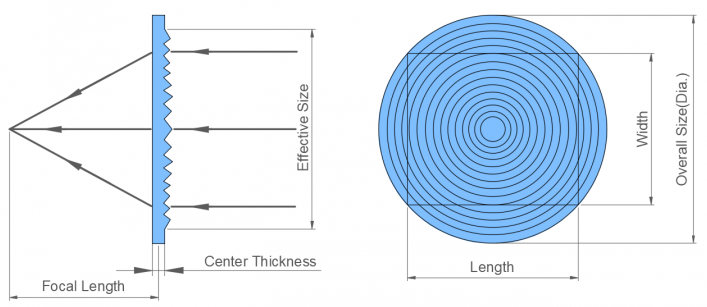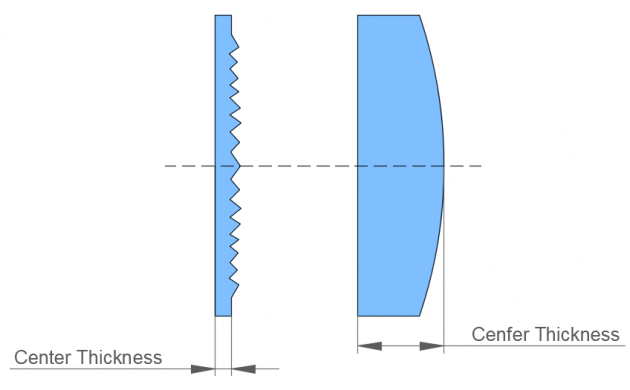Fresnel lenses, named after scientist Augustin Jean Fresnel, are distinctive optical instruments made from concentric grooves carved onto plastic or glass. Despite trade-offs in picture quality, their miniature and lightweight design, along with their versatility, sets them apart in a variety of fields.
Fresnel Lens Basics and Applications
Fresnel lenses, distinguished by their concentric grooves, find usage in computer-controlled systems, traffic signals, and situations requiring light beam manipulation. These lenses play an important role in light-gathering applications, including emitter/detector setups, magnifiers, condenser systems, and projection lenses.
The design benefit of Fresnel lenses stems from their division into concentric annular sections.
This enables the development of lenses with large apertures and short focal lengths, reducing material usage compared to traditional lenses. Some Fresnel lenses, whether made of plastic or glass, can even adopt the shape of a flat sheet. This is particularly true in the case of plastic construction.
Imaging Trade-offs and Focusing Ability
While Fresnel lenses have the same curvature as conventional lenses, their etched grooves provide a trade-off between minimized thickness, mass, and picture quality. The capability to concentrate light becomes difficult, and curvature accuracy may vary.
However, for cases where accurate imaging is not paramount, Fresnel lenses are an excellent alternative due to their thin profile and lightweight construction.

Frensel Lens. Image Credit: Shanghai Optics

Thickness of Lenses. Image Credit: Shanghai Optics
Advantages of Fresnel Lenses
Fresnel lenses, made of plastic or glass, provide several advantages, including a thin and lightweight design, availability in various sizes, and remarkable light-gathering capability. Their ability to concentrate light similarly to conventional optical lenses makes them useful in smaller-scale applications.
In conclusion, Fresnel lenses provide considerable efficiency in specialized applications, such as traffic signals and computer-controlled systems, due to their creative design and optical characteristics.
While trade-offs exist in picture quality, their unique design enables adaptability in a wide range of optical applications.
Shanghai Optics specializes in developing custom optics, including plastic and glass Fresnel lenses, for clients in industries ranging from medicine and defense to research and manufacturing.

This information has been sourced, reviewed and adapted from materials provided by Shanghai Optics.
For more information on this source, please visit Shanghai Optics.